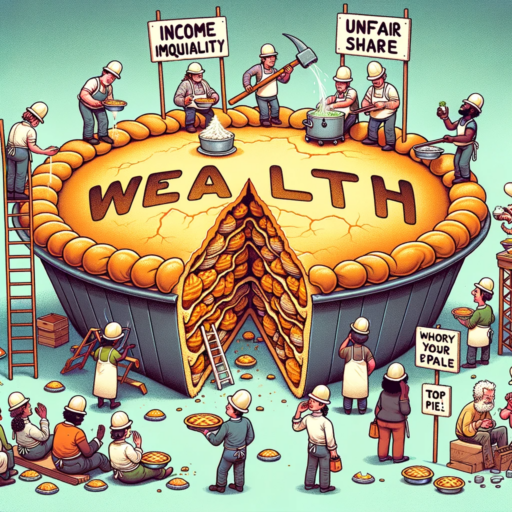1. Misunderstanding Wealth Creation: One of the foundational arguments against the idea of rampant income inequality is a fundamental misunderstanding of wealth. Wealth isn’t a zero-sum game. Just because one individual becomes wealthier doesn’t mean another becomes poorer. The pie isn’t fixed; it grows with innovation, industry, and entrepreneurship. Those who focus on income inequality often fail to recognize the dynamics of wealth creation.
2. Meritocracy in Action: Proponents argue that modern economies, particularly capitalist ones, reward individuals based on their skills, knowledge, and contribution. Those who innovate, take risks, and add value to society are often the ones who reap the most significant financial rewards. Labeling this as “inequality” undermines the very principles of hard work and innovation.
3. The Role of Choices: Personal choices play a significant role in economic outcomes. Choices related to education, career paths, spending habits, and even networking can lead to vastly different financial futures. It’s argued that attributing disparate outcomes solely to systemic inequality dismisses the importance of individual agency and accountability.

4. Overemphasis on Top Earners: A common narrative is the comparison of the earnings of top CEOs to average workers. While these figures can be stark, they can also be misleading. The top earners, often outliers, don’t accurately represent the broader population. By focusing on these extremes, one can misconstrue the economic reality of the majority.
5. Mobility is Possible: Contrary to the popular narrative, upward mobility is achievable. Many individuals have risen from humble beginnings to achieve significant economic success. By branding the system as inherently unequal, one risks discouraging others from pursuing their ambitions.
6. Underachievers and Blame: It’s argued that the narrative of income inequality is sometimes perpetuated by those who seek external factors to blame for personal failures or lack of progress. By attributing lack of success to an overarching, systemic issue, it absolves individuals from taking personal responsibility.
In the grand theater of life, where everyone is bestowed with the same 24 hours in a day, it’s quite the spectacle to observe the ‘Underachievers United’ brigade. This elite club, known for their unparalleled skill in marathon Netflix binge-watching and their uncanny ability to find any excuse in the book, often appear perplexed at the concept of ‘hard work’. But fear not, for they have a master plan! Why bother with the tedious grind of self-improvement when you can simply extend a hand and await the magical rain of handouts? After all, life is just one big freebie waiting to be claimed, right?